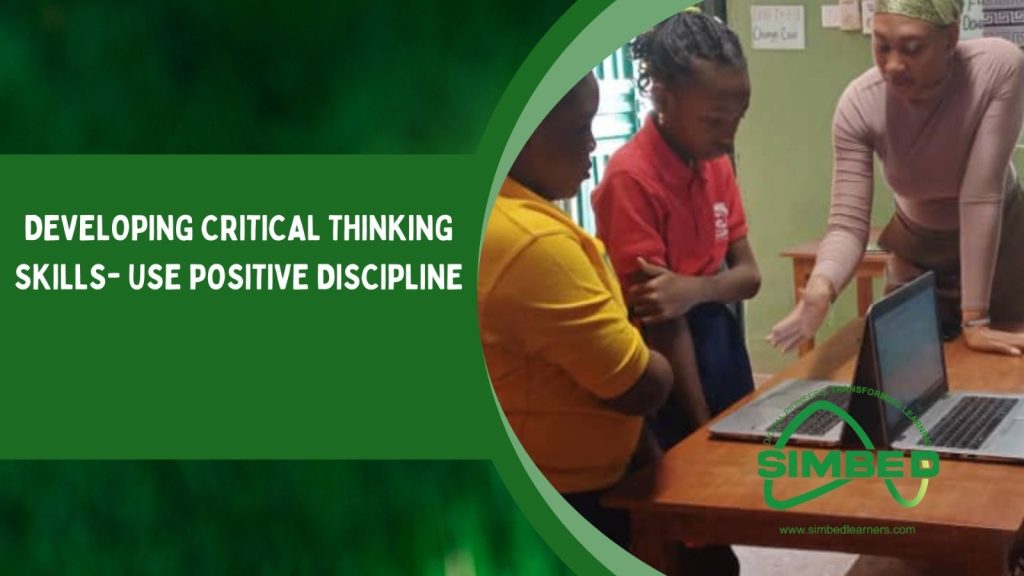
At Simbed Learners School, fostering well-rounded, thoughtful individuals is at the heart of our mission. Critical thinking is a foundational skill that empowers children to reason effectively, make sound decisions, and solve problems creatively. One of the most effective ways to nurture this skill is through positive discipline. Unlike traditional punishment, positive discipline focuses on guiding children with respect and empathy, encouraging them to think through their actions and make better choices.
What Is Positive Discipline?
Positive discipline is a teaching strategy that helps children understand the impact of their behavior while building essential life skills. It emphasizes kindness, firmness, and clear expectations. Instead of imposing punishment, it promotes responsibility, self-control, and the ability to reflect on one’s actions.
The Connection Between Positive Discipline and Critical Thinking
Critical thinking develops when children are given the opportunity to:
- Analyze problems and explore solutions.
- Think through consequences of their actions
- Learn from mistakes in a supportive environment
Positive discipline provides the structure for this kind of reflective learning. By guiding children to consider their choices and consequences, we encourage independent thinking and decision-making.
Strategies for Using Positive Discipline to Promote Critical Thinking
1. Ask Open-Ended Questions
Instead of telling children what they did wrong, ask questions that help them analyze the situation.Example: “What happened here?”Follow-up: “What could you do differently next time?”This approach encourages children to reflect and think critically about their behavior.
2. Teach Problem-Solving
When children face a challenge, guide them to explore multiple solutions.Example: “You’re having trouble sharing that toy. What are some ways you and your friend can both be happy?”Teaching problem-solving strengthens critical thinking by encouraging creativity and collaboration
.3. Model Reasoning and Decision-Making
Children learn by observing adults. Share your thought process when making decisions. Example: “I was going to buy these snacks, but I noticed they are not healthy. Let’s think of better choices together.”This modeling helps children develop reasoning skills.
4. Encourage Responsibility with Logical Consequences
When rules are broken, use logical consequences instead of punishment.Example: If a child forgets to put away their toys, instead of scolding, explain: “When toys are not put away, they can get broken or lost. Let’s clean up so they are safe.”Logical consequences help children understand cause and effect, a key element of critical thinking.
5. Promote Empathy and Perspective-Taking
Help children think about how their actions affect others.Example: “How do you think your classmate felt when you took their pencil without asking?”Empathy encourages thoughtful consideration of others’ feelings and perspectives.
At Simbed Learners School, our goal is to create a nurturing environment where children grow into thoughtful, responsible, and independent thinkers. By incorporating positive discipline into our daily interactions, we not only guide behavior but also lay the foundation for strong critical thinking skills that will serve our students for life.We look forward to seeing how these strategies can transform everyday learning moments into powerful lessons in reasoning, responsibility, and reflection. Together, let’s continue shaping confident, curious learners ready to navigate the challenges of tomorrow!
Click here to see a video showing our success story in implementing Positive Discipline in Simbed.
